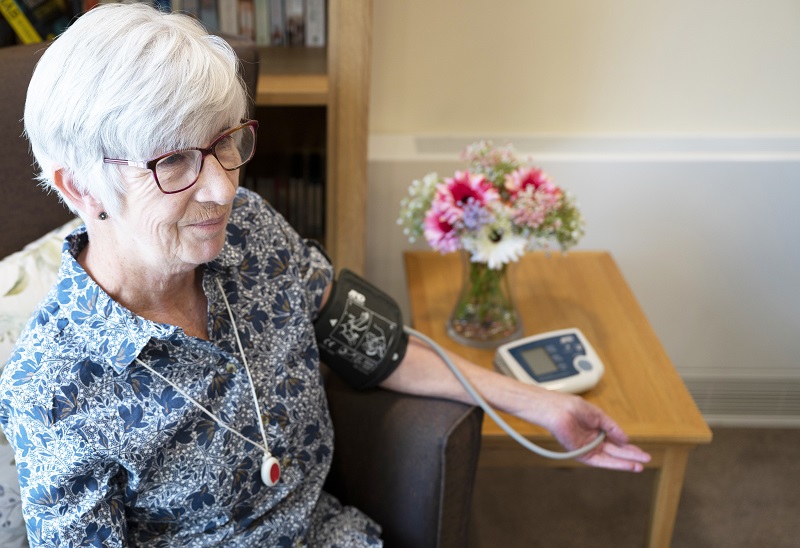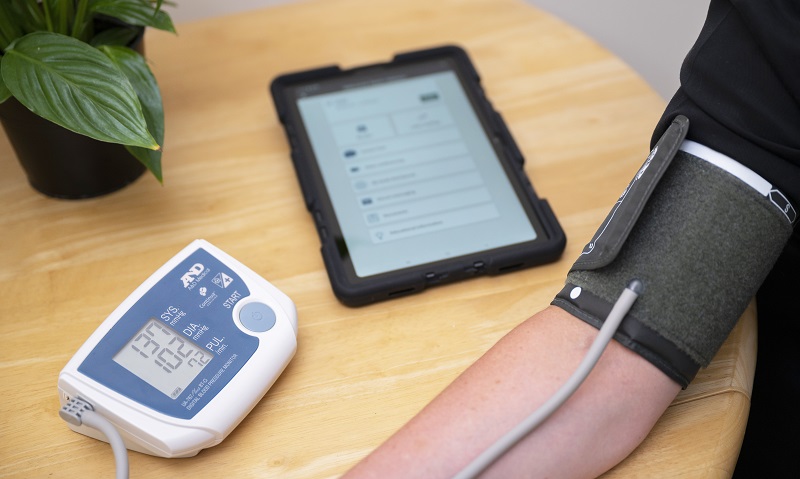The Office for National Statistics predicts a 36% growth in people aged 85 and over between 2015-2025, from 1.5 million to two million.
And, as our ageing population grows, demand for care will increase and we’ll see service requirements continue to change.
We must, therefore, invest in technology and innovate the solutions that are currently available to improve the quality of care provided and meet growing demands.
Balancing independence and safety with quality care provision, particularly in a residential care setting, can be challenging.
Through the establishment of ICSs, we hope to see social care providers collaborate more often with health and technology services, which will have a positive and long-lasting impact on population health and the independence of users
But care assist and nurse call systems have the ability to enable care to be delivered where, and when, it is needed most, reduce stress for caregivers, and improve outcomes for citizens.
Connected care systems
We must build on the collaborations that have already been generated to shape a connected system that is better able to serve people in such a fast-changing world.
And integrated Care Systems (ICSs) will play a key role in enabling us to remove silos between health and social care providers and integrate our systems to more effectively meet the needs of our population.
Through the establishment of ICSs, we hope to see social care providers collaborate more often with health and technology services, which will have a positive and long-lasting impact on population health and the independence of users. By working together, we can create a truly-joined-up approach where we listen to citizens, understand their everyday needs, and work together to bridge gaps in our services.
Technology has a key role to play in services being delivered in innovative ways, placing citizens at the heart of decision making and enabling collaborative approaches between health and care services that drive a connected system
However, to ensure we’re able to truly integrate health and social care, innovate care provision, and enable end users to become active participants in their own care; we must consider investment in technology as an integral part of service delivery. This, in turn, will ensure citizens benefit from better standards of care, social benefits are identified and embedded into society, and the system becomes more preventative and better able to manage the use of high-cost services.
Technology has a key role to play in services being delivered in innovative ways, placing citizens at the heart of decision making and enabling collaborative approaches between health and care services that drive a connected system.
Using technology to support people is cost effective and can help citizens to live independently for longer with an increased quality of life.
These approaches using technology already provide tangible benefits to end users and those who care for them.
Care assist systems

Care assist systems offer the potential to create a more-connected and intelligent world that can enable a more-collaborative approach to the delivery of efficient and pro-active care services.
The use of care assisted systems will support greater collaboration with partners, allowing a strong focus and determination to deliver person centred care. They enable care to be more efficient and responsive and allow for straightforward, non-obtrusive systems which benefit those in health and social care settings.
Investment in these systems will support numerous telecare integrations and sensors, including wearable devices, along with early detection of changes in behaviours to provide solutions tailored to an individual's need and offering several benefits for the delivery of care.
These systems also enable care to be delivered in ‘bubbles’, supporting infection control.
The investment in this kind of technology will support higher quality of focused interaction between carers and end users, advanced reporting capabilities, and improved quality of care.
Investment in Technology Enabled Care Services (TECS) can also achieve significant cost avoidance.
NHS Calderdale Clinical Commissioning Group invested in telecare systems where a truly person-centred approach was needed to best meet the needs of people living in residential care.
Following the investment in 2018, emergency admissions relating to falls were reduced by 7.7%, resulting in an annual saving to the Quest programme in excess of £200,000.
Wider digital transformation and the application of data analytics is now seen as vital to the smarter management of operations, allocation of resources, collaboration across teams and services, and ultimately better delivery of care
Integration and investment in technology will enable health and social care providers to reconfigure services to provide better outcomes.
And utilising data and technology will provide actionable insights to deliver better, more-informed, and more-effective care.
Wider digital transformation and the application of data analytics is now seen as vital to the smarter management of operations, allocation of resources, collaboration across teams and services, and ultimately better delivery of care.
Integrated Care Systems (ICSs) will play a key role in removing silos between health and social care providers
Care assist systems in action
Park View Nursing Home in Halifax is a 41-bed home offering comprehensive and individualised 24-hour care.
Recently a new care assist system was installed which has transformed the way care is delivered, increased efficiency, and the quality of life of residents.
Park View had an 18-year-old nurse call system which used wall-mounted units in residents’ rooms that would emit loud alarms throughout the building if a resident activated the unit.
Several screens in communal areas of the building would then give details of the resident asking for assistance.
The existing system was coming to the end of its life, therefore the Park View team partnered with Tunstall Healthcare to introduce Tunstall Carecom as a cost-effective, advanced, and integrated care assist and telecare system.
Traditional nurse call systems used in care homes rely on wired infrastructure with fixed call points to accommodate the restrictions of the building, rather than meeting the needs of residents and staff.
Tunstall Carecom is a flexible system better suited to the demands of modern care delivery, by enabling care to be designed around individual residents.
The system is wireless, and beacons are installed at strategic locations which interact with smart pendants worn by residents.
Caregivers can manage the system on a number of devices, including a mobile app, and calls from individual residents can be routed to specific carers.
Investment in technology will support greater integration, creating better cost efficiencies, bespoke care, increased peace of mind for families and carers, and data to provide actionable insights into care
Managers can then access an intuitive, GDPR-compliant online care planning platform which documents auditable activities and provides management reporting.
Since installing the wireless system, Park View has secured a range of benefits including reduced noise levels, increased dignity, more-effective care planning, increased morale, and a more-person-centred approach.
Tunstall's Carecom solution is supporting residents at Park View Nursing Home in Halifax
Future of assistive care systems
Investment in care assist systems across the health and social care landscape improves the day-to-day lives of residents and staff by enabling care to be tailored to each individual which then supports improved outcomes.
The pressures on our services require radical investment to provide innovation and technology developments to address growing challenges and enable the system to become fit for 21st-century health and care needs
And pro-active and preventative technology can help us look to the decades ahead with confidence and safeguard our services for the future.
The use of care assist systems will transform the efficiency and delivery of health and social care and investment in technology will support greater integration, creating better cost efficiencies, bespoke care, increased peace of mind for families and carers, and data to provide actionable insights into care.
The health and social care landscape must have digital innovation and investment at its core which is embraced by health and social care providers.
The pressures on our services require radical investment to provide innovation and technology developments to address growing challenges and enable the system to become fit for 21st-century health and care needs.
